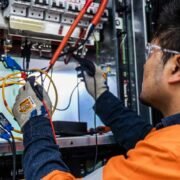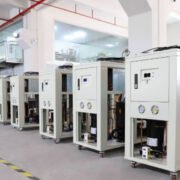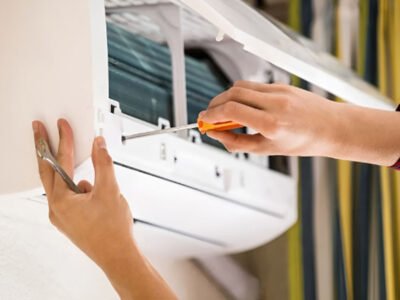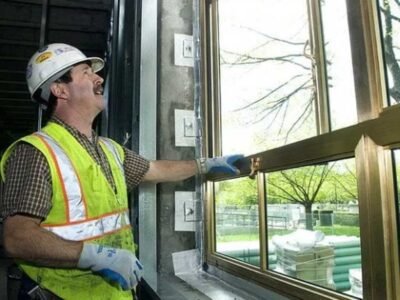Making a decision on whether or not to repair or replace your air conditioning system can be one of the most challenging parts of owning your own home. Trying to decide whether you should spend money on repairing an old, inefficient AC unit or invest in purchasing a new one can often be overwhelming and confusing.
To help you make this important decision, we’ve created this comprehensive guide that outlines all the facts, considerations and costs associated with both options so that you can feel comfortable making the right choice for your budget and lifestyle. Read on to learn more about if it’s time to repair or replace your air conditioner.
Need your AC repaired or replaced? Check out Smart Air Solutions.
Assess the age and condition of your current AC system
The first step in deciding whether to repair or replace your AC system is to assess the age and condition of your current system. A typical air conditioning unit can last about 10-15 years, but if you’ve had yours for longer than that, then it may be time for a replacement. Older units are less efficient than newer models and will cost you more money in electricity bills each month.
When assessing your current unit, also look for signs of wear and tear, such as rust or corrosion on the AC coil. If you see any of these signs, it’s likely time to replace your old AC system with a newer one.
Additionally, check that the air filter is clean and there are no leaks coming from your unit. If any of these issues exist, they will be costly to repair and may be more cost-effective to replace the system instead.
Consider the energy efficiency rating of your existing system
When considering whether to repair or replace your AC system, you should also take into account the energy efficiency rating of your existing system. An older or less efficient unit will be more costly to run than a newer model with a higher energy efficiency rating. You can find out the energy efficiency rating of your current unit by looking at the label on the side of the unit.
For example, a standard air conditioner may have a SEER rating of 9-10, while a newer AC unit with advanced energy efficiency features might have a SEER rating of 15 or higher. By upgrading to an energy-efficient model, you can save up to 20% on your utility bills each month.
Another way to improve energy efficiency is to have your existing AC system inspected by a professional. This will help ensure that it is running properly and you are getting the most out of your unit for each dollar spent on energy bills.
Compare repair costs versus replacement costs
Once you’ve ascertained the age and condition of your current AC system and have a better understanding of its energy efficiency rating, it’s time to compare repair costs versus replacement costs.
When considering repair costs, factor in not only the cost of labor, but also the cost of replacing any outdated parts that may need to be replaced in order to get the unit back up and running. This cost may be more than purchasing a new, higher-efficiency model.
When considering replacement costs, you’ll want to look at the price of the unit itself as well as the cost for installation and any additional features that you might want, such as air filtration or humidity control. Keep in mind that by investing in a newer model, you may be able to save money on your energy bills over the long run.
Weigh all of your options carefully and remember to factor in both short-term costs as well as future savings before making your final decision.
Factor in any additional installation costs associated with a new AC unit
When considering if it’s time to repair or replace your air conditioner, you’ll want to factor in any additional installation costs associated with a new AC unit.
Typically, the cost of installing a new air conditioner will include labor, as well as parts and materials needed for the job. Some additional installation costs could include ductwork modifications or additional wiring for a new thermostat.
These additional costs will depend on the complexity of the job and should be discussed with your HVAC contractor prior to committing to a new AC system. It’s also important to note that some air conditioners may come with installation warranties, so be sure to check what is included in any warranty you purchase.
Conclusion
Deciding whether to repair or replace your AC system can be a daunting task. When making this decision, it’s important to consider the age and condition of your current system, its energy efficiency rating, repair costs versus replacement costs and any additional installation costs associated with a new unit.
By weighing all of these factors carefully and factoring in both short-term costs and future savings, you can find the best solution for your particular situation.














Comments